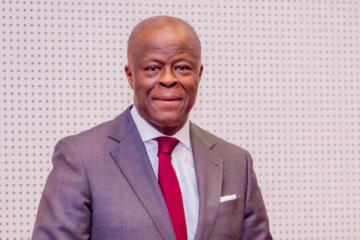Death toll in Plateau Christmas attack hits 148

The death toll in the latest coordinated attacks on the Plateau has risen to 148, the Chairman of Bokkos Local Government Area, Monday Kassa disclosed on Wednesday.
The toll marked a sharp rise from the initial figure reported by the army on Sunday evening of just 16 dead in a region plagued for several years by religious and ethnic tensions.
Kassa stated this during a visit by Vice President Kashim Shettima, three days after the assailants set ablaze several houses. The marauders also looted farm produce and destroyed properties as they butchered the residents, an act that has been condemned by President Bola Tinubu who directed security agencies to unmask the attackers.
He said 38 communities were attacked by them on Sunday, the worst outbreak of violence in Plateau since May when more than 100 people were killed in farmer-herder attacks.
Military gangs, locally called “bandits”, launched “well-coordinated” attacks in “not fewer than 20 different communities” and torched houses, Kassa had said.
In his speech, the Vice President said President Tinubu’s administration is determined to bring to an end the security challenges in the Plateau and other parts of the country.
Noting that President Tinubu was touched by the barbaric act, Shettima assured the people of justice and that the perpetrators of the heinous act would be brought to book.
He also directed the National Emergency Management Agency (NEMA) to provide immediate intervention to those affected especially those displaced from their homes.
Hundreds of families are now living in internally displaced persons camps provided by the state government.
The attacks which started in the Bokkos area spilled into neighbouring Barkin Ladi where 30 people were found dead, according to local chairman Danjuma Dakil.
On Sunday, Plateau State Governor Caleb Mutfwang condemned the violence, calling it “barbaric, brutal and unjustified”.
“Proactive measures will be taken by the government to curb ongoing attacks against innocent civilians,” said Gyang Bere, the governor’s spokesperson.
Gunfire could still be heard on late Monday afternoon, according to a source from the region, which is on the dividing line between Nigeria’s mostly Muslim north and mainly Christian south.
Markus Amorudu, a resident of Mushu village, said people were sleeping when shots rang out.
“We were scared because we weren’t expecting an attack. People hid, but the assailants captured many of us, some were killed, others wounded,” he told AFP.
Amnesty International criticised the government in the wake of the attacks, saying “the Nigerian authorities have been failing to end frequent deadly attacks on rural communities of Plateau state,” in a post on X, formerly Twitter.
Northwest and central Nigeria have been long terrorised by bandit militias operating from bases deep in forests and raiding villages to loot and kidnap residents for ransom.
Competition for natural resources between nomadic herders and farmers, intensified by rapid population growth and climate pressures, has also exacerbated social tensions and sparked violence.
A jihadist conflict has raged in northeastern Nigeria since 2009, killing tens of thousands of people and displacing around two million, as Boko Haram battles for supremacy with rivals linked to the Islamic State group.
President Bola Ahmed Tinubu, a former Lagos governor elected in February in a highly contested ballot, has promised to attract more investment to Africa’s largest economy and most populous country in a bid to tackle its persistent security challenges.











